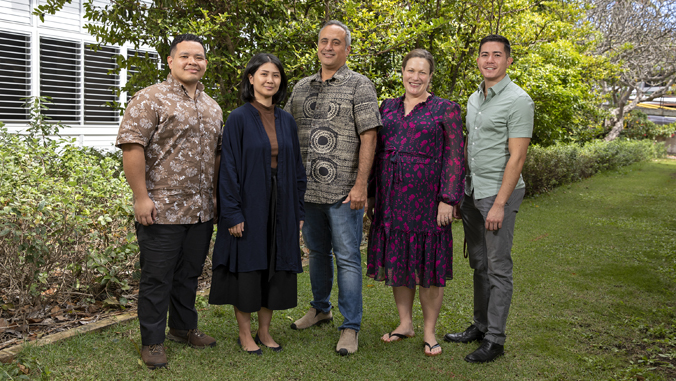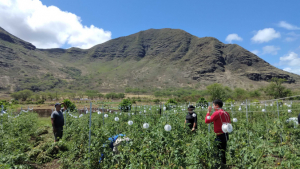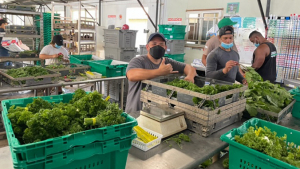
A new $2-million award will help the University of Hawaiʻi address Indigenous health disparities and advance health equity in Native Hawaiian and Pacific Islander (NHPI) communities.
The award from the U.S. Department of Health and Human Services (HHS) Office of Minority Health (OMH) supports UH’s Center for Indigenous Innovation and Health Equity (CIIHE, pronounced: cheeee heee), which has the potential to receive an additional $8 million from OMH over the next four years.

The five-year initiative places an emphasis on implementing innovative and culturally derived frameworks to prevent and improve disparities in chronic diseases, such as obesity, hypertension and diabetes, in partnership with Kōkua Kalihi Valley Comprehensive Family Services, a federally qualified health center based in Honolulu.
“We are excited by the opportunity that this project provides us to continue to directly support our regional cultural practitioners communities in growing the evidence base for understanding traditional cultural practices as effective contemporary health interventions,” said Principal Investigator and UH Office of Indigenous Knowledge and Innovation Director Kamuela Enos.
UH’s effort will focus on supporting community-based efforts that increase NHPI patients’ exposure to traditional cultural practices like lāʻau lapaʻau (plant medicine), cultural birthing practices, mālama ʻāina (caring for the land), lomilomi (massage) and ʻai pono (healthy eating). These practices can serve as a buffer against chronic diseases, specifically cardiometabolic diseases and mental health disorders, through collaborative service, education, research and policy initiatives.

CIIHE was launched by a $1-million grant in fiscal year 2021 from HHS OMH. The Center was created through a vision between Enos and UH Office of Strategic Health Initiatives Director and CIIHE Co-Principal Investigator Aimee Malia Grace.
In early 2023, CIIHE received an additional $4.6 million through an anonymous gift that will fund the Center’s first endowed chair and provide funding for programs and activities to advance their work.
“American Indian, Alaska Native, Native Hawaiian and Pacific Islander populations experience a high burden of health disparities or differences in health outcomes compared to other populations,” said Rear Admiral Felicia Collins, MD, deputy assistant secretary for minority health and OMH director. “Thus, we are pleased that the Center for Indigenous Innovation and Health Equity will continue to develop, implement, and evaluate culturally appropriate approaches for reducing and eliminating these disparities through partnerships with academic institutions, Indigenous leaders, and community members.”

